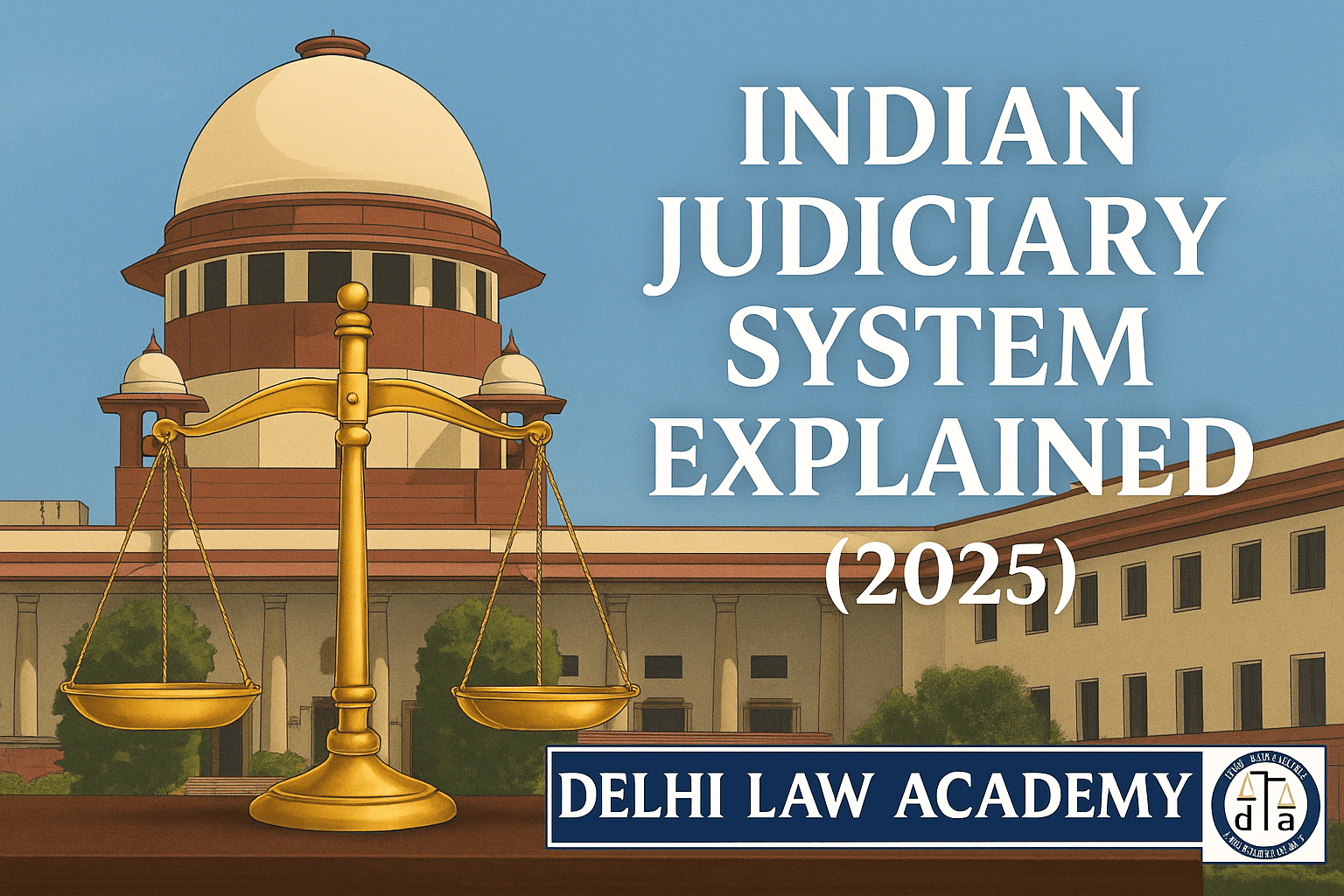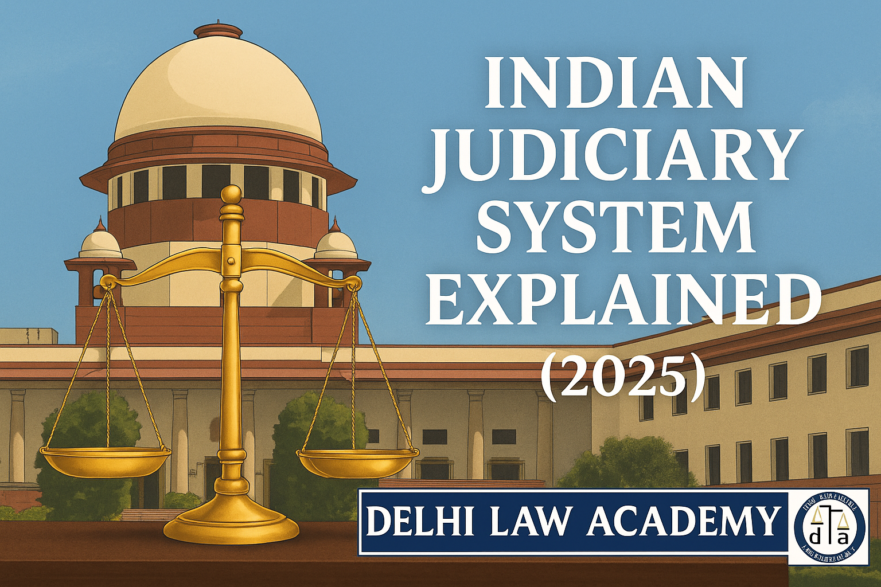
🇮🇳 Indian Judiciary Explained: Your Ultimate Guide (2025 Edition) ⚖️
Welcome to your one-stop resource on the Indian judiciary! Whether you’re gearing up for the RJS, DJS, UPSC Law, or CLAT, understanding our judicial system is crucial. Let’s dive in! 💡
🏛️ What Is the Indian Judiciary?
The judiciary is the third pillar of India’s democracy, alongside the legislature and executive. Its primary role is to interpret laws, resolve disputes, and ensure that all actions by the state and citizens comply with the Constitution.
- Legislature: Makes the laws.
- Executive: Implements the laws.
- Judiciary: Interprets the laws and ensures justice.
📜 Constitutional Foundations of the Judiciary
The Constitution establishes a single, integrated judicial system. The independence of the judiciary is a cornerstone principle, ensuring impartiality and fairness.
| Article | Provision |
|---|---|
| Article 124 | Establishes the Supreme Court of India |
| Article 214 | Mandates a High Court for each state |
| Article 233 | Appointment of district judges |
| Articles 32 & 226 | Writ jurisdiction of Supreme Court & High Courts |
| Article 141 | Supreme Court decisions binding on all courts |
⚖️ Landmark Cases that Shaped the Judiciary
Kesavananda Bharati v. State of Kerala (1973)
- Issue: Can Parliament amend any part of the Constitution?
- Judgment: Parliament can amend the Constitution but cannot alter its “basic structure.”
Supreme Court Advocates-on-Record Association v. Union of India (1993)
- Issue: Who has the authority to appoint judges to the higher judiciary?
- Judgment: Established the “collegium system,” giving the judiciary primacy in judicial appointments.
🧭 Hierarchy of Courts in India
Understanding the court structure is vital for any law aspirant. Here’s a simplified hierarchy:
- Supreme Court of India: The apex court, located in New Delhi.
- High Courts: Each state has its own High Court.
- District Courts: Handle civil and criminal cases at the district level.
- Subordinate Courts: Include Magistrate Courts and Civil Judge Courts.
🧠 Why Should You Care?
The judiciary isn’t just about legal jargon; it’s about ensuring justice, protecting rights, and upholding the Constitution. Whether you’re an aspiring judge or a law enthusiast, understanding the judiciary’s role is essential.
🎓 DLA’s Take
At Delhi Law Academy, we believe in making complex concepts accessible. Our expert faculty breaks down such intricate topics for judiciary exam aspirants, ensuring a comprehensive understanding.
📚 Further Reading & Resources
Explore more learning material, blogs on Supreme Court judgments, legal topics, and stay updated with our monthly current affairs!
All resources are completely free for aspirants to help you stay ahead in your judiciary preparation. 🚀
❓ Frequently Asked Questions About the Indian Judiciary
The Indian judiciary has a three-tier structure: the Supreme Court at the apex, High Courts in each state, and subordinate courts at the district and local levels. This ensures effective distribution of justice across the country.
The Supreme Court is the apex judicial authority. It interprets the Constitution, resolves disputes between states or the center and states, protects fundamental rights, and acts as the guardian of the rule of law in India.
Cases like Kesavananda Bharati (1973) and the collegium judgment (1993) establish important principles, such as the basic structure doctrine and judicial independence, influencing future interpretation and legal practice.
The hierarchy starts with the Supreme Court at the top, followed by High Courts in each state, then district courts, and finally subordinate courts such as civil judges and magistrates. This ensures clarity in appellate and trial jurisdiction.
Knowledge of the judiciary helps aspirants understand constitutional provisions, procedural rules, and landmark judgments. It also prepares them for exams like RJS, DJS, and UPSC law papers, and lays the foundation for practical legal skills.
DLA provides structured guidance with expert faculty, comprehensive study material, video lectures, and doubt-clearing sessions. Students learn complex topics in an easy-to-understand format, making exam preparation more effective.
Contact us
📍 Delhi Law Academy – Jaipur Branch
6C, Tower 2, Coaching Hub, Pratap Nagar, Jaipur – 302033
📞 Phone:
+91 9911916552
+91 8447285606
✉️ Email:
contactus@delhilawacademy.com
🌐 Website:
www.delhilawacademy.com

